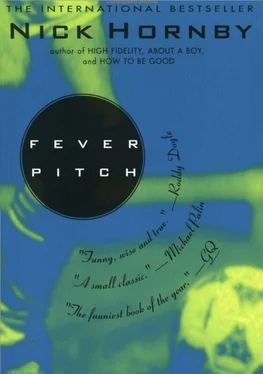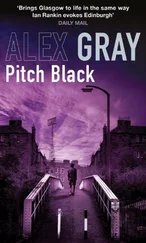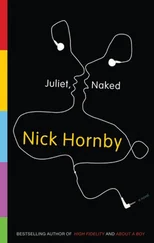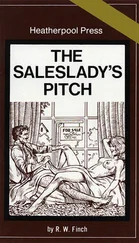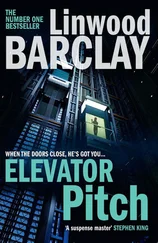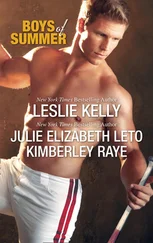ARSENAL v WIMBLEDON
19.9.87
I can’t remember how it happened—probably I trod on the ball or something equally graceless. And I didn’t realise the implication of it straight away. I just knew, when I hobbled off the five-a-side court, that my ankle hurt like hell and was swelling like a bastard in front of my eyes. But when I was sitting in my flatmate’s car on the way back to our flat, I began to panic: it was a quarter to one, I couldn’t walk, and I had to be at Highbury by three.
At home, I sat with a bag of frozen peas balanced on the end of my leg while I contemplated the options. My flatmate, his girlfriend and my girlfriend suggested that, since I was completely immobile and in obvious pain, I should sit at home listening to the radio, but obviously that wasn’t possible; and once I realised that I was going to the game somehow, that there were taxis and seats in the Lower West Stand and friends’ shoulders to lean on if necessary, the panic subsided and it became a simple matter of logistics.
It wasn’t so bad, in the end. We got the tube to Arsenal instead of Finsbury Park—not as far to walk—and we all stood outside, not in our usual spot under the North Bank roof, even though it pelted down for the whole of a goalless second half, so that I could lean against a crush barrier and avoid any tumbles down the North Bank when Arsenal scored. But still. Getting soaked to the skin (and insisting that everyone else got soaked to the skin with me), shivering with the pain and trebling my journey time to and from the ground didn’t seem like too bad a price to pay. Not when you consider the cataclysmic alternative, anyway.
COVENTRY v ARSENAL
13.12.87
Pete and I left around twelve, I guess, for a three p.m., Sunday afternoon kick-off, and got there just in time. It was an awful game, unspeakable, a nil-nil draw in freezing conditions … and it was live on television, so we could have stayed at home. My powers of self-analysis fail me completely here: I don’t know why we went. We just did.
I didn’t see a live League game on television until 1983, and neither did anyone else of my generation. When I was a kid there wasn’t so much football on TV: an hour on Saturday night, an hour on Sunday afternoon, sometimes an hour midweek, when our clubs had European games. We got to see an entire ninety minutes only very rarely. Occasional England games were shown live; then there was the FA Cup Final, and maybe the European Cup Final … two or three live club games a year, maximum.
That was obviously ridiculous. Even Cup semi-finals, or Championship deciders, weren’t televised live; sometimes the stations weren’t even allowed to show us highlights. (When Liverpool just pipped QPR for the Championship in 1976, we got to see the goals on the news, but that was all; there was a whole set of incomprehensible rules about TV coverage that no one understood.) So despite satellite technology, and colour televisions, and 24-inch screens, we had to sit with our ears pressed against transistor radios. Eventually the clubs realised that there was big money to be made, and the TV companies were happy to give it to them; the behaviour of the Football League thereafter has resembled that of the mythical convent girl. The League will let anybody do anything they want—change the time of the kick-off, or the day of the game, or the teams, or the shirts, it doesn’t matter; nothing is too much trouble for them. Meanwhile the fans, the paying customers, are regarded as amenable and gullible idiots. The date advertised on your ticket is meaningless: if ITV or BBC want to change the fixture to a time more convenient to them, they will do so. In 1991, Arsenal fans intending to travel to the crucial match at Sunderland found that after a little television interference (kick-off was changed from three to five), the last train to London left before the game finished. Who cared? Just us, nobody important.
I will continue to attend televised games at Highbury, mostly because I’ve already paid for my ticket. But, sod it, I’m not going to travel to Coventry or Sunderland or anywhere else if I can sit at home and watch the match, and I hope lots of other people do the same. Television will notice our absence, one day. In the end, however much they mike up the crowd, they will be unable to create any atmosphere whatsoever, because there will be nobody there: we’ll all be at home, watching the box. And when that happens, I hope that the managers and the chairmen spare us the pompous and embittered column in the programme complaining about our fickleness.
ARSENAL v EVERTON
24.2.88
I know that I have apologised a great deal during the course of these pages. Football has meant too much to me, and come to represent too many things, and I feel that I have been to watch far too many games, and spent too much money, and fretted about Arsenal when I should have been fretting about something else, and asked for too much indulgence from friends and family. Yet there are occasions when going to watch a game is the most valid and rewarding leisure pursuit I can think of, and Arsenal against Everton, another second-leg Littlewoods Cup semi-final, was one of those times.
It came four days after another huge game, against Manchester United in the FA Cup, a game which Arsenal won 2-1 but only after McClair had sent a penalty high over the bar and into an ecstatic North Bank with the last kick of the game (and Nigel Winterburn pursued him relentlessly and unpleasantly back to the half-way line after he had done so, one of the first hints of this Arsenal team’s embarrassing indiscipline); so it was an enormous week, with gigantic crowds—fifty-three thousand on the Saturday, fifty-one thousand on the Wednesday.
We beat Everton 3-1 that night, 4-1 on aggregate, a comfortable enough win which Arsenal fully deserved, but we had to wait for it. Four minutes before half-time Rocastle beat Everton’s offside trap, went round Southall, and stroked the ball well wide of a completely empty goal; and then three minutes later Hayes was through too, only this time Southall brought him down six inches from the goal-line. Hayes took the penalty himself, and, like McClair, booted it well over the bar. And the crowd is going spare with frustration and worry; you look around and you see faces working, completely absorbed, and the susurration that spreads around the ground after particularly dramatic incidents lasts all the way through half-time because there is so much to talk about but, at the beginning of the second half, Thomas chips Southall and scores, and you want to burst with relief, and the noise that greets the goal has a special depth to it, a bottom that you only get when everyone in the stadium except for the away supporters gives the roar everything they’ve got, even people right up the top in the fifteen quid seats. And though Heath equalises soon after, Rocky then makes up for his earlier miss, and Smith gets another one, and the whole of Highbury, all four sides of the ground, is alive, yelling and hugging itself with delight at the prospect of another Wembley final, and the manner in which it has been achieved. It’s extraordinary, knowing that you have a role to play in all this, that the evening wouldn’t have been the same without you and thousands like you.
Absurdly, I haven’t yet got around to saying that football is a wonderful sport, but of course it is. Goals have a rarity value that points and runs and sets do not, and so there will always be that thrill, the thrill of seeing someone do something that can only be done three or four times in a whole game if you are lucky, not at all if you are not. And I love the pace of it, its lack of formula; and I love the way that small men can destroy big men (watch Beardsley against Adams) in a way that they can’t in other contact sports, and the way that the best team does not necessarily win. And there’s the athleticism (with all due respect to Ian Botham and the England front row, there are very few good fat footballers), and the way that strength and intelligence have to combine. It allows players to look beautiful and balletic in a way that some sports do not: a perfectly-timed diving header, or a perfectly-struck volley, allow the body to achieve a poise and grace that some sportsmen can never exhibit.
Читать дальше
